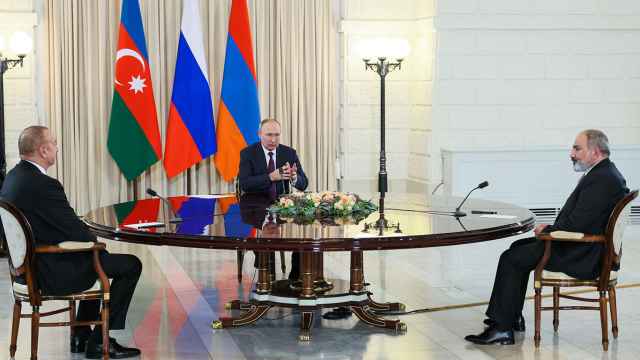Investor sentiment toward local electricity stocks is almost as bad as in October 2008 when the generic Unified Energy System share price (the weighted average of its 23 spin-offs) was $0.20. At the end of 2011, the value stood at $0.60. UES itself had ceased to exist on June 30, 2008, at a share price of $1.10. In other words, UES investors would have lost roughly half of their initial investment.
While most of the losses occurred in the fall of 2008, during the global financial crisis, investors these days are put off by industry-specific developments: regulatory uncertainties and government interference. Recent government actions on regulated tariffs raise doubts about the outcome of what has easily been the largest infrastructure reform globally.
Following is an outline of the problems and possible solutions.
Problem No. 1: Assets are worn out.
Since the 1980s, the sector has suffered from underinvestment, and $350 billion to $400 billion must be spent on hardware over the next 10 years. The electricity distribution sector alone intends to spend $90 billion by 2020, but its current earnings before interest, tax, depreciation and amortization, or EBITDA, is only $4 billion. The government, for its part, has effectively done its best to discourage capital spending. It has changed the rules of the game many times, partly disregarding earlier guidelines and apparently keen to create national champions that stifle competition. Strategic investors, especially from the private sector, understandably hesitate to make additional financial commitments in such an environment.
Problem No. 2: Cross subsidies. Large industrial consumers argue that massive cross subsidies have made electricity provided via the national grid very expensive. Cross subsidies are a legacy of the Soviet Union in which industrial consumers continue to subsidize the general population. They pay about the same as industrial consumers in the West — $10 to $12 per megawatt per hour — even though Russian prices for natural gas, the main fuel in both Western European and Russian electricity generation, are 60 percent lower. At the same time, Russian households pay only a third of what Germans are paying. Many industrial consumers respond by building their own generation facilities and disconnecting from the national grid.
Problem No. 3: Regulation is driven by political considerations. It's not that the rules are bad but that they are changing all the time. There is basically no single regulatory body that coordinates regulatory framework. Responsibilities are diluted, and the consequences can be fatal.
Decisions, especially those in recent months, frequently have been politically motivated. The flip side is that the financial condition of utility companies is deteriorating and, thus, the reliability of electricity supply. Many companies will actually reduce their investment programs.
Companies have no certainty about their future cash flows. For highly capital-intensive utilities, this is unacceptable. Who can afford investments worth billions of rubles with payback periods of 10 to 15 years when regulations are changed so often and so arbitrarily? Unreliable cash flow projections increase the cost of capital. In the final analysis, the end user pays higher prices than necessary. Most important, the government jeopardizes the reliability of an industry that is the backbone of the economy.
Problem No. 4: Inefficiencies and corruption. In most cases, regional governors see the electricity distribution sector as a cash cow. It is no secret that many independent grids are affiliated with the governors. Since governors are effectively responsible for a part of the regional tariffs — through regional energy commissions — they are exposed to conflicts of interest. The government has promoted the creation of national champions such as InterRAO and Gazprom's electricity generating facilities. These are also subject to conflicts of interest. Take Gazprom, for example: The company has an incentive to push its subsidiaries to buy gas from the parent company even if independent gas producers offer lower prices.
It is unfortunate that only recently Prime Minister Vladimir Putin noticed that every second top manager in the industry is affiliated with supply companies or service providers.
There has been a lot of talk about privatizations in the electricity sector. It is just talk so far. Meanwhile, Gazprombank, a network of a state-owned monopoly and close-to-government oligarchs, is trying to get hold of MRSK Moscow, continuing to pervert the idea of privatization.
My proposed solutions are straightforward. Some readers may think they border on the naive in the present political environment. Here is a list:
1. Stop cross subsidies from industrial consumers to the population. The government should liberalize household electricity prices. This alone will boost the sector's annual revenues by 200 billion to 250 billion rubles ($6.8 billion to $8.5 billion). Tariffs must be increased two or more times in the next few years. This is an inevitable step that should be on the agenda of the next government.
2. Once and for all, the government needs to establish the rules of the game. Create a centralized regulatory body. Presently, the Economic Development and Energy ministries and the Federal Tariffs Service set up the framework, and dozens of regional bodies, one in each region, have a say over various regulated tariffs as well. This is way too much.
Just as important as centralization is the transparency and predictability in setting tariffs. Having blown up the electricity distribution sector last year by de facto defaulting on the RAB regulation parameters and shifting the announcement of new "reloaded" parameters to last Sunday, the government once again missed a deadline.
3. The privatization of electricity distribution companies must be accelerated. This sector is a gold mine in terms of potential efficiency gains. The existing shareholder structure is counterproductive in this regard. Presently, the main argument against privatization is that the government wouldn't get attractive offers from strategic investors. We don't agree. The government should emphasize energy efficiency — lower production costs will translate into smaller tariff hikes and thus benefit all end consumers.
4. Intensify competition. Stop the consolidation of independent generation and retail supply companies into state-owned companies. Otherwise it does not make sense to talk about a liberalized wholesale electricity market.
So far the government has antagonized both domestic and foreign strategic and portfolio investors. While strategic investors have to adapt, portfolio investors can vote with their feet. It is no longer an easy task to restore trust, though. As the CEO of the largest Italian electricity distribution company told me a couple of years ago: "I will never invest in Russia. They never deliver."
Despite the many misgivings we have, we regard most Russian electricity-related assets as great value investment opportunities. Electricity companies trade at four times their EV/EBITDA. On average, global peers are two times more expensive. The Russian companies also offer one of the best earnings growth profiles were it not for the recent regulatory interventions. Even so, the reproduction value is up to five times higher than their current market capitalization. We are aware that ours is a minority opinion. Sometimes it pays to go against the trend.
Sergei Yezimov is portfolio adviser with Wermuth Asset Management.
A Message from The Moscow Times:
Dear readers,
We are facing unprecedented challenges. Russia's Prosecutor General's Office has designated The Moscow Times as an "undesirable" organization, criminalizing our work and putting our staff at risk of prosecution. This follows our earlier unjust labeling as a "foreign agent."
These actions are direct attempts to silence independent journalism in Russia. The authorities claim our work "discredits the decisions of the Russian leadership." We see things differently: we strive to provide accurate, unbiased reporting on Russia.
We, the journalists of The Moscow Times, refuse to be silenced. But to continue our work, we need your help.
Your support, no matter how small, makes a world of difference. If you can, please support us monthly starting from just $2. It's quick to set up, and every contribution makes a significant impact.
By supporting The Moscow Times, you're defending open, independent journalism in the face of repression. Thank you for standing with us.
Remind me later.





